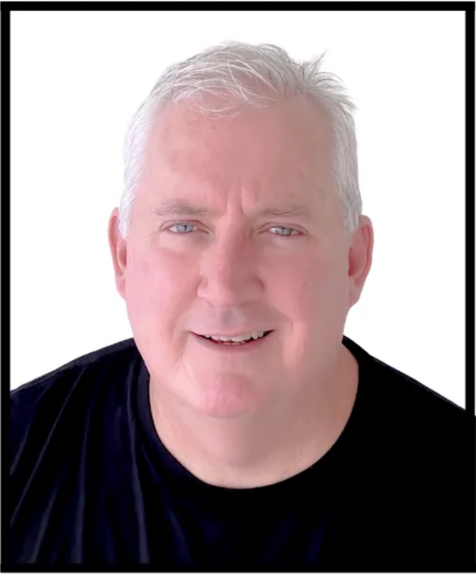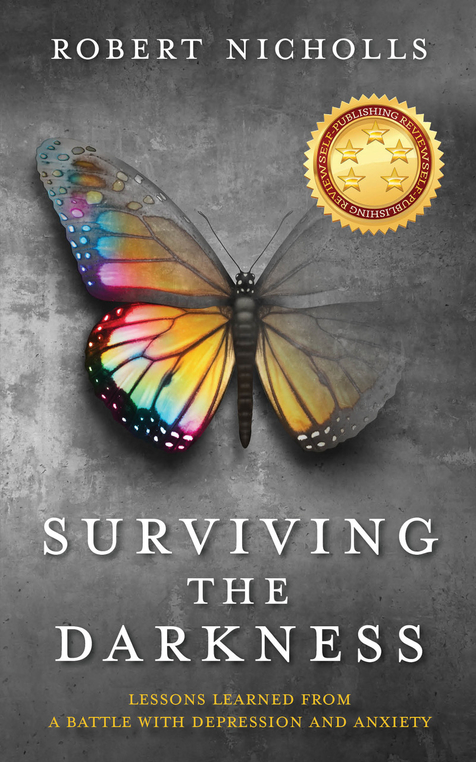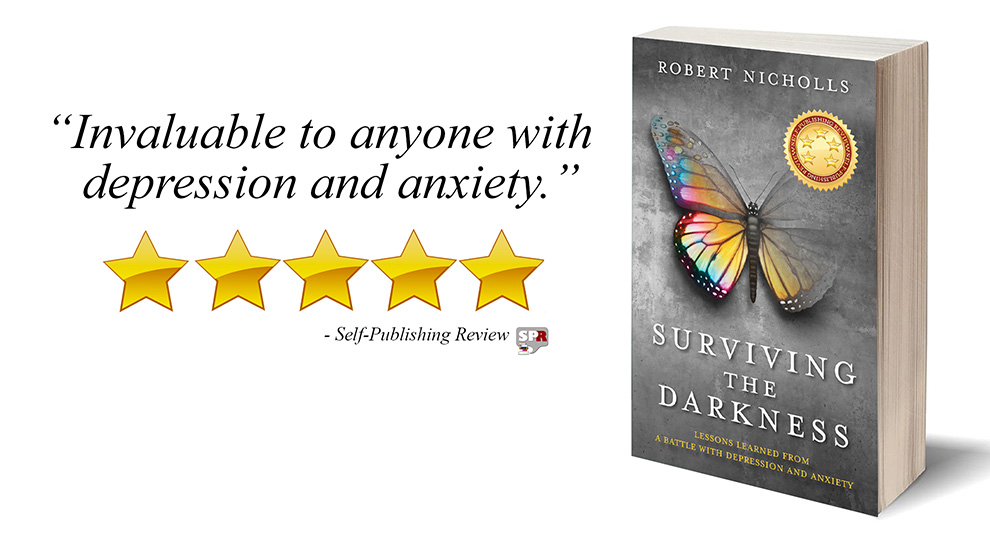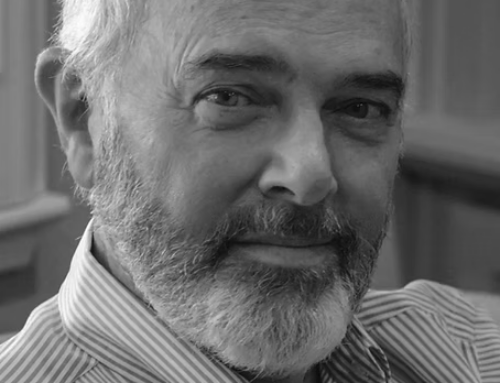 Robert Nicholls is an Australian indie author and freelance writer. Surviving the Darkness is his first published book. Previously, Robert had a long and successful career in various roles as a specialist business lawyer, commercial mediator, chartered corporate secretary, company director, senior corporate executive, and business owner. Today, Robert’s writing focus extends to subjects including mental health, self-help and improvement, motivation, human endeavour, communication, life, and leadership, and to other writing genres, which are featured on his blog. Robert lives on the Gold Coast in Queensland, Australia.
Robert Nicholls is an Australian indie author and freelance writer. Surviving the Darkness is his first published book. Previously, Robert had a long and successful career in various roles as a specialist business lawyer, commercial mediator, chartered corporate secretary, company director, senior corporate executive, and business owner. Today, Robert’s writing focus extends to subjects including mental health, self-help and improvement, motivation, human endeavour, communication, life, and leadership, and to other writing genres, which are featured on his blog. Robert lives on the Gold Coast in Queensland, Australia.
Tell us about your book.
Surviving the Darkness: Lessons learned from a battle with depression and anxiety is a personal account of the lessons that I have learned from my experiences with depression and anxiety with a particular emphasis on the practical aspects of coping with these illnesses, overcoming common obstacles, restoring hope through the discovery of pathways to recovery, and if you care for someone with depression, providing them with meaningful support.
Why did you choose to self-publish?
After undertaking some research, I discovered that my time was better suited to navigating my own way rather than spending it, trying to understand the individual requirements and idiosyncrasies of different publishing houses. I was also motivated by the prospect of maintaining complete control and autonomy over the entire project and the inherent flexibility that this provided in the process.
Would you self-publish again?
Yes. I would certainly consider self-publishing again. While self-publishing is a challenging proposition, I also found it immensely gratifying and rewarding.
 What do you think are the main pitfalls for indie writers?
What do you think are the main pitfalls for indie writers?
I think the main pitfalls are: (1) understanding the publishing process; (2) recognising the importance of having a book edited by an independent, professional editor, and a book cover and internal pages designed by a skilled contractor; and (3) promoting the book to influencers, quality book reviewers and the market generally, especially given the sheer volume of self-published titles available.
What tips can you give other authors looking to self-publish?
There are a lot of self-publishing services on offer which have the capacity to under-deliver and drain your valuable resources. Some charge significant amounts of money for tasks which you can do yourself for free. Use the money you save to invest in getting your book edited, your cover and internal pages designed, and for marketing. You can never do enough research. Invest the time to learn, read a lot of blogs, reach out to other self-published authors, and never stop asking questions.
Why did you write about this particular subject?
I had always wanted to write a book but never thought it would take me this long or be on this topic. For many reasons, it was not an easy book to write. It is, after all, my first book. It is also about a subject that I still find difficult to talk about, especially when it comes to relating my own experiences with depression and anxiety and, in doing so, expose my shortcomings for the whole world to read about and pass comment on. But that is where the self-pity must end because this was an important book to write. For me, it was a cathartic experience.
More importantly, it provided the opportunity to share with others the invaluable lessons that I have learned in discovering the pathways to recovery and, ultimately, in surviving the ‘darkness’. If this book saves just one life and, with that, a family from eternal misery, then from my perspective, it has been well worth the adventure. I hope that it also contributes in its own small way to the erosion of the stigma that still unfairly attaches to people with depression and anxiety.
Who should read Surviving the Darkness?
Surviving the Darkness will doubtless be invaluable to anyone who has a diagnosis of depression and anxiety, presenting a realistic portrait of the many pathways to recovery. For caregivers and supporters of those with depression, helpful suggestions are offered, including comprehensive tables detailing things to say (and to avoid saying), warning signs to look out for, prevention tips and the importance of self-care. The book is also likely to benefit anyone seeking a better understanding of depression and anxiety and the impact of these illnesses upon sufferers.
 What can readers expect to get from reading the book?
What can readers expect to get from reading the book?
* A concise, thought-provoking account about recovery from depression and anxiety.
* Useful references and practical tools for sufferers and carers.
* Guidance on ways to overcome common obstacles (the barriers to treatment).
* How to become “the driver, not a passenger” in your recovery.
* An understanding of the treatment options, including tips on selecting your Recovery Team and how to identify ‘good’ therapy.
* Coping strategies that you can use or adapt to your situation.
* Benefits of the lessons learned over many years from a battle with depression and anxiety.
* An abundance of encouragement and ultimately, the means of restoring hope.
What did you learn on your journey as an author?
As this was my first published book, I learned that writing as an author, while enjoyable, can also be hard work, especially on those days where the ‘right’ words seemed elusive and an empty screen a torment. It also taught me that you are never too old to be naïve and to keep learning.
What’s next for you as an author?
While the ink is barely dry on Surviving the Darkness, I intend on exploring opportunities to write more books on other topics.
Author Links
Get an Editorial Review | Get Amazon Sales & Reviews | Get Edited | Get Beta Readers | Enter the SPR Book Awards | Other Marketing Services






















Leave A Comment